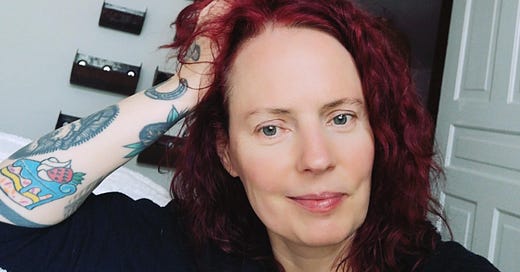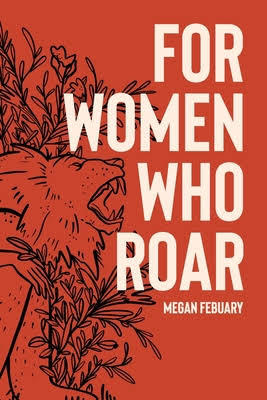Of Sunglasses & Survival
"I’m building up the courage to say something that’s haunted me for two decades, “I have a problem with alcohol.”
By Treena Orchard
It’s the morning after the night of annihilation. My tired eyes are glued to the living room floor in my boyfriend’s apartment. I’m building up the courage to say something that’s haunted me for two decades, “I have a problem with alcohol.”
It begins innocently with some day drinking at the St. Regis tavern. The “Reg” is one of those dilapidated places where old men live and sometimes die in the tiny rooms on the top floor. Their sunken frames grace the barroom daily and like grisly little oracles, they tell sad stories over cheap draft beer. They always choose good music on the juke box though, AC/DC, CCR, and maybe Cher if they’re feeling frisky.
We play some pool and laugh our way through several bottles of Labatt 50 served by the waitress with brassy blonde hair and sausage bangs. Smoke breaks are taken, and a sense of excitement hangs in the air. But as the bathroom trips become more frequent and wobblier, things change. Carefree feelings are replaced by the gnawing fear of our combined toxicity and the chaos that will surely follow.
We leave the Reg a few hours later and stroll down the street, towards the city centre. I purchase a pair of 80s-inspired speckled sunglasses from a street vendor and the magic of happy drunkenness returns.
My memories of the rest of that night are blurry. I book a hotel room and remember leaning against a non-descript green chair while looking out the large widow. The sky was bleak and awash with that dull grey reserved for early Spring. What will the night bring?
Given our predilection for fighting and getting kicked out of bars, the odds aren’t good. I recall dodging traffic outside the hotel and locking my boyfriend outside of the room. I push hard against the door and won’t let him in. I’m crying and screaming, about what I don’t know. How did we not get kicked out?
***
The bottom has a powerful status in recovery and pop culture circles. Cool, tragic, maybe heroic. It’s about beginnings and repeated attempts to curb the pain that drives people to hurt themselves and others. It’s also snicked about and the focus of exploitative television shows, a symbol of our hypocritical society that marks every great occasion with drinks yet heaps judgement on those who flounder inside the bottle.
The bottom is boundless and remains open twenty-four hours a day for all of us who check in once or fifty times. When I land on its floor I am scared and lost. Now what? I also feel lighter as the weight of decades of shame and hiding begin to lift. Comfort can be found in the bottom, which is a dark but democratic space inhabited by people bound together by despair and a desire to begin their reckoning.
***
I finally make eye contact with my boyfriend and say: “There’s a meeting on Central Avenue tonight at 7.” His ashen face reflects my own faded energies, and it reaffirms what I no longer want. I’m so fucking exhausted after years of chasing my tsunami of troubles away while telling myself that being the wild one is my lot in life, to work hard and play even harder.
I resolve to begin understanding “my issues” and feel terrified but also excited to begin my trek through the uncertain terrain of healing. I call my mom a couple hours later and she says: “I’ve been waiting for this day.” Then we both start crying. As we talk, I think about her struggles with alcohol and the ruin it caused our family. I never wanted to be like her and yet here I am, which stirs up familiar emotions of resentment and embarrassment.
But then she did the unthinkable and got sober two years ago, which means I can too. What a thing to share, this anchor and this cross.
The abusive relationship with my mother formed the mould for all my intimate relationships, and it’s why I stayed with my boyfriend so long. The devastation was familiar. Try explaining that to people who ask, with tilted heads and pained facial expressions, “But why didn’t you just leave?”
There are many edges and hollows of life that others cannot fathom. How can I explain the schizophrenic reality of knowing that someone is hurting me terribly, knowing that it’s wrong, but being completely bereft of a way out?
Leaving is not a simple act. It’s about more than having the courage to depart the madness and danger of another person. It’s also about throwing ourselves a life preserver and believing we deserve to do more than just hang on. Loving ourselves is not a simple act, either.
I make it to the AA meeting, but it’s not clear how a revolving room of strangers talking about a higher power and “the big book” is going to help me. It’s done wonders for my mom and millions of others but is not my path. A gifted counselor, uncomfortable conversations with family, and learning how to climb up the slippery walls of change continue to see me through.
I am also learning to forgive my mom and myself. I still have those speckled sunglasses.
Treena Orchard is an anthropologist, author, and activist who researches sexuality, gender, the politics of health among marginalized groups and digital cultures. She is currently an Associate Professor & Undergraduate Chair in the School of Health Studies at Western University in London, Ontario. Alongside supervising graduate students, teaching, and fawning over her cats, Treena is writing a compelling, comedic memoir with AEVO, the trade imprint of the University of Toronto Press, called Sticky Sexy Sad: Swipe Culture and the Darker Side of Dating Apps.
Thank you for reading! If you are free or paid subscriber, thank you for being here and part of our community. If you are new click the subscribe button to get access to weekly writing from our Authors.
For Women Who Roar is a reader-supported publication. To receive new posts and support my work, consider becoming a free or paid subscriber.
A note from the publisher: I am so happy you are here and reading with us! I hope you enjoy and subscribe for the latest writing to drop into your inbox. Submissions will re-open in the Fall, so stay tuned for all the updates. :) You can find me (Megan) on Instagram and all the writing prompts + inspiration on my Heal Your Story sister Substack. Also, if you are seeking writing support, I offer coaching and editing here.





